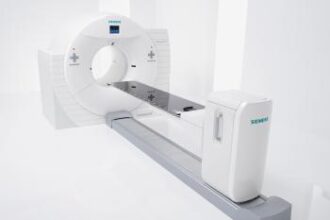Ever since the COVID-19 pandemic hit us, there have been unprecedented advancements in the field of healthcare. And with those advancements, there is also a growing need for efficient and effective business operations within healthcare organizations.
Whether it is the rising demand for quality patient care or handling the complexities of billing and reimbursement, healthcare institutions face a multifaceted set of challenges that are in dire need of innovative solutions.
Revenue lifecycle management (RLM) is one approach that is gaining prominence in the healthcare industry as a way to tackle streamlining and enhancing financial processes. The global revenue cycle management market is expanding exponentially and is expected to grow at the rate of 13.60% CAGR between 2023 and 2035.
In this article, I am going to discuss the pivotal role that revenue lifecycle management plays in empowering healthcare providers to overcome financial hurdles while optimizing revenue streams and focusing on delivering high-quality patient care.
Automation of Manual Tasks
Many operational processes in the healthcare industry that have historically been manual and resource-intensive can now be automated. These processes include appointment scheduling, patient registration, insurance verification, claim processing, and other peripheral data entry.
Revenue lifecycle management allows healthcare providers to identify these manual tasks in their business operations by conducting comprehensive process audits so they can begin automating them with various software solutions. The process involves analysis of workflows to pinpoint areas where manual interventions are frequent and time-consuming.
For example, the manual verification of insurance eligibility is a common bottleneck in healthcare administration and can be a prime candidate for automation. Implementing electronic health records (EHRs) can reduce the need for duplicate data entry and ensure that patient information is accurately updated across all systems. The process can automate the generation and submission of insurance claims, thus reducing the chances of errors and accelerating the reimbursement process.
Software solutions can also help streamline patient appointments by sending notifications to patients and staff, reducing no-shows, and improving efficiency. RLM can even unearth opportunities to automate patient billing, ensuring that bills are generated on time, payment plans are set up, and reminders are sent when payments are due.
The automation of these processes also has a significant impact on patient satisfaction. Appointment scheduling systems enable patients to book appointments according to their convenience and receive automated reminders. Patients can access portals to view their billing information, review charges, and set up payment plans. Streamlining billing and claims processing results in faster reimbursements, adding to customer satisfaction.
Healthcare professionals also benefit significantly from the implementation of the revenue lifecycle management model. The automation of manual processes can reduce the workload significantly, thus ensuring better work satisfaction among healthcare professionals and improving productivity.
Improve Communication and Coordination
Efficient communication is the lifeline of the healthcare industry and can have a great impact on patient care, treatment outcomes, and operational efficiency. However, healthcare providers often work in specialized departments, which leads to information silos where critical patient data may not be readily accessible to everyone concerned.
The compliance requirement to adhere to strict privacy regulations like the Health Insurance Portability and Accountability Act (HIPAA) adds complexity to sharing patient data securely.
Revenue lifecycle management often involves integrating healthcare systems like EHRs, billing software, and patient management platforms to break down information silos and ensure that patient data is accessible wherever needed. The right approach, of course, also prioritizes data security and privacy compliance while sharing information among healthcare teams, insurers, and patients.
Real-time updates on medical, billing, and financial data ensure that healthcare teams have access to the latest information when making critical decisions. Automation tools can send automated notifications to alert physicians, nurses, and billing departments to ensure everyone is informed about critical developments.
Streamline the Billing Process
The traditional healthcare billing process might have been suitable for the healthcare requirements of the older times. However, those methods are definitely outdated and insufficient to cater to the present volume of healthcare requirements.
Each insurance plan has its own set of rules and requirements, which adds to the complexity of billing. Healthcare services require accurate coding and detailed documentation to support claims, or it can result in denials or delays. Claim reimbursements have become even more unpredictable in recent years, and many claims are denied despite proper accreditations and documentation.
The Kaiser Family Foundation (KFF) published a report recently on plans for the Affordable Care Act marketplace, demonstrating that various companies denied 17% of their claims on average in 2021, despite doctors and hospitals approving the plans and patients receiving treatment from in-network doctors. One of the insurance providers denied 49% of its claims in 2021, while another denied a staggering 80% of the claims in 2020.
There’s also an increasing trend of higher deductibles and copays, which means that the patients have to bear a significant portion of healthcare costs. That is why healthcare institutions often face problems while collecting payments from patients, especially when they are unaware of their financial responsibilities or face difficulties in paying their bills. Additionally, healthcare providers also had to adhere to regulatory guidelines like the Fair Debt Collection Practices Act (FDCPA).
With the revenue lifecycle management approach, healthcare providers often automate the claim submission and tracking process while ensuring accurate coding and compliance with the insurer’s requirements. Software solutions can verify patient insurance eligibility in real time, thus reducing the chances of claims denial because of coverage issues.
Some systems also help healthcare providers select the appropriate codes for procedures and diagnoses and reduce the chances of errors. These systems also include auditing and compliance features so healthcare providers can ensure that the billing processes adhere to regulatory standards, thereby reducing the risk of legal penalties. All of these features help in reducing the time it takes to receive payments from insurers, which boosts cash flow for healthcare business operations.
Streamlining the billing process also leads to greater satisfaction among patients. RLM solutions can facilitate the setup of payment plans, which allows patients to spread their financial responsibility over manageable periods. The solutions can also send automated payment reminders, which can be customized to suit individual preferences. The entire process is quite transparent to the patient, which definitely adds to their overall satisfaction.
Improve Decision-Making with Data Analysis
Data analytics has emerged as a game changer in the healthcare industry, especially due to its pivotal role in improving the decision-making processes. Healthcare organizations are often burdened with analyzing vast amounts of data related to patient records, billing information, clinical outcomes, and other operational metrics.
RLM experts can analyze all this operational data to optimize resource allocations, reduce costs, and streamline other business processes, eventually leading to better staff and resource allocation.
Healthcare business operations can gain insights into revenue cycles, billing patterns, and reimbursement rates, enabling them to identify areas of improvement and accurately predict future revenue. They can also identify cost-effective suppliers to reduce expenses related to medical supplies and pharmaceuticals.
Some software solutions employ predictive analysis to identify patients who can pose a high risk of non-payment. Healthcare providers can engage with those patients proactively to prevent revenue loss and bad debt. Systems can even be integrated with third-party collection agencies while adhering to legal and ethical collection practices to recover outstanding payments when required.
Final Thoughts
Revenue lifecycle management has emerged as a powerful ally in the dynamic landscape of the healthcare industry, where the demand for quality patient care and financial efficiency is constantly rising. The multifaceted approach of the RLM approach can optimize business operations while enhancing patient experience and alleviating burnout for healthcare professionals.
From streamlining billing processes and improving data analytics to fostering transparency and reducing administrative burdens, RLM’s impact reverberates across the entire healthcare ecosystem. It brings about tangible benefits, such as increased revenue, improved patient satisfaction, and higher provider morale.
As healthcare continues to evolve, the role of RLM remains instrumental in aligning financial success with patient-centered care. By addressing the complexities of revenue management and supporting providers in delivering exceptional healthcare, RLM stands as a cornerstone for a healthier, more efficient, and more satisfying healthcare future.








